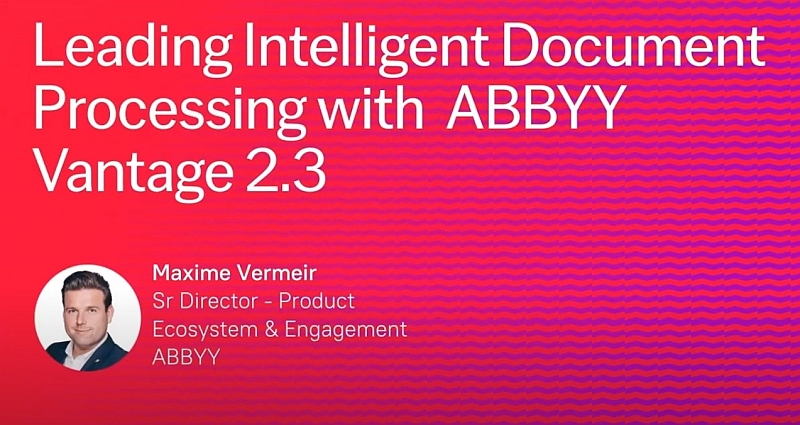The Second Tax Revolution—How Trustworthy AI Transforms Online Tax Filing
by Chip VonBurg, Chief Customer Officer
In the context of trusting artificial intelligence in the tax process, trustworthiness can be evaluated in terms of customer outcomes, business outcomes, and outcomes of other stakeholders such as citizens.
Advancements in technology are always met with initial uncertainty. From the inception of the internet to the first smartphone, innovation can introduce profound benefits at the expense of the status quo.
Filing taxes is no exception: many people were once skeptical of online filing services, but the convenience and accessibility offered by these platforms has brought undeniable value to customers. The mountains of physical forms and hours spent flipping through pages from 15 years ago are no more, making online tax services a clear choice for 97 percent of filers.
Now tax filing is experiencing another digital transformation, involving an even more controversial technology: artificial intelligence (AI).
The rapid evolution of AI has been massively disruptive, even prompting some tech leaders to call for a pause on its development. Nonetheless, AI shows no signs of stopping. Trusting AI with personal finances might be an uncomfortable thought for some, but several tax preparation companies have integrated artificial intelligence into their software to drastically expedite the filing process.
As AI continues to become more intertwined with business operations and consumers’ personal information, it is necessary to consider its trustworthiness from different perspectives. In the context of trusting artificial intelligence in the tax process, trustworthiness can be evaluated in terms of customer outcomes, business outcomes, and outcomes of other stakeholders such as citizens.
Enhancing customer outcomes
Filing taxes can be a lengthy and complicated process, requiring a multitude of documents and constant verification of information. Individuals with complicated returns can easily be overwhelmed by the volume of information that is required or become discouraged from maximizing their return.
By implementing AI in customer-facing tax software, companies can reduce required manual entry and make the process more filer-friendly. This can reduce errors and improve tax outcomes, leading to better experiences for customers and a healthier brand reputation for companies. In some cases, customers have been able to file taxes in about 11 minutes on average.
AI can be trusted to fill in gaps in customers’ understanding of the tax process. Those who aren’t familiar with the ins-and-outs of every unique form, deduction, or credit can lean on artificial intelligence to pull key information and identify opportunities. While customers should still have to follow prompts and consider the validity of their claims and data, AI has a more reliable store of information that can steer them in the right direction and provide a greater understanding than if they were left to their own devices.
From the customer’s perspective, AI-assisted filing eliminates the monotonous task of manual entry and provides the tools needed to maximize their return without assuming total control. By leaving the wheel in the filer’s hands, AI offers value while avoiding added risk.
Enhancing business outcomes
Some tax preparation companies use legacy systems that aren’t conducive to easy customization, restricting their agility in adapting to the wide variety of forms and special circumstances that arise during tax season. This means bottle necked back-end processes, which will delay customers’ returns and damage brand reputation.
By deploying AI-driven solutions like intelligent document processing (IDP), tax companies can tailor their platform to specific document processing needs. Low-code / no-code interfaces and pre-trained document skills empower citizen developers to effectively use AI to keep tax filing processes running smoothly with impressive straight-through document processing rates, so the customer sees their return as quickly as possible.
One leading tax preparation company found that ABBYY Vantage extracted tier-one (highest priority) data with 100 percent accuracy right out of the box, and it trained Vantage Document Skills to achieve 90+ percent, drastically reducing the need for human intervention. The IDP solution was implemented in just a few months before being used successfully for the immediate tax season—a testament to the scalability and ease of deployment enabled by AI-driven tools.
By putting more control in the hands of citizen developers to quickly deliver IDP solutions for their highest value use cases, artificial intelligence provides organizations with both immediate and long-term business value.
Enhancing public outcomes
According to the White House AI Bill of Rights, artificial intelligence must work for the benefit of the public to be considered responsible and trustworthy. By using AI-driven software to inform government entities like Congress, the IRS, and courts of discrepancies within proposed tax law, artificial intelligence could help close the $500 billion gap in tax revenue that is lost to legal loopholes.
This is an advanced application of artificial intelligence that currently exists only in concept; however, increased investments in the development of trustworthy AI would make desirable public outcomes achievable.
If pursued correctly, trusting AI to enhance tax filing will not only enhance outcomes for businesses and individuals, but also a much broader constituency of citizens. Provided the proper precautions are in place to ensure trustworthy and ethical use, the tax process is among the ripest of opportunities for automation and artificial intelligence.














